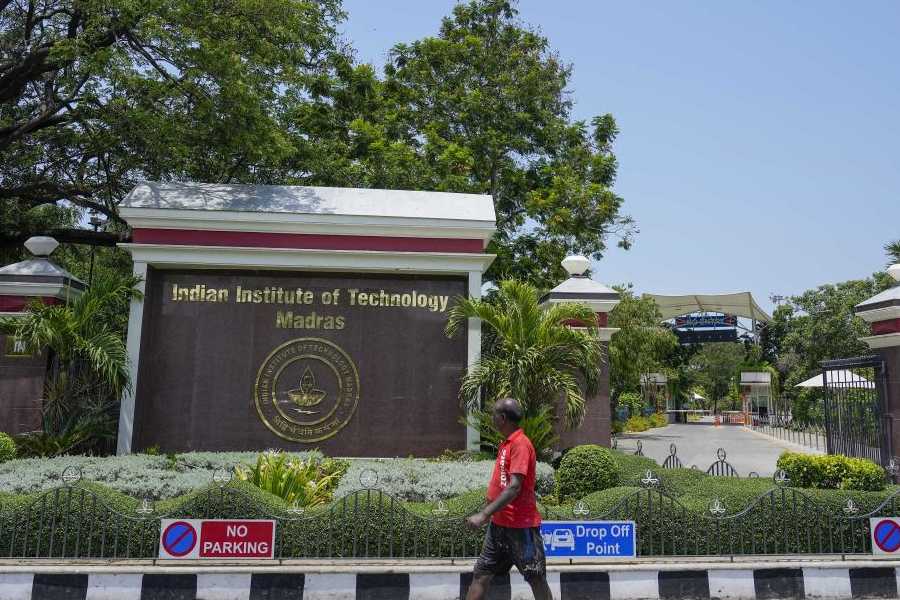Researchers at IIT Madras have developed a microfluidic device that can detect bacterial resistance to antibiotics in just three hours.
Called ε-µD, the device uses electrochemical signals to provide results much faster than conventional antimicrobial susceptibility testing (AST), which usually takes two to three days.
The World Health Organisation (WHO) has identified antimicrobial resistance (AMR) as a top global health threat, linked to 4.95 million deaths in 2019. Delays in diagnosis often push doctors to prescribe broad-spectrum antibiotics, worsening the problem.
Unlike methods that rely on costly materials or complex lab setups, ε-µD is built with screen-printed carbon electrodes in a simple microfluidic chip, making it suitable for smaller clinics and rural centres.
It uses electrochemical impedance spectroscopy to track bacterial growth in the presence of antibiotics.
The study, co-authored by Saranya Gopalakrishnan of Kaappon Analytics India Pvt Ltd, Diksha Mall, and IIT Madras faculty, has been published in Nature Scientific Reports.
Professor S. Pushpavanam, Y B G Varma institute chair professor, department of chemical engineering, IIT Madras, explained: “An important aspect of our device is the use of a specially prepared nutrient solution that serves a dual purpose. It not only supports bacterial growth, which is essential for testing, but also enhances the sensitivity of the electrical signals we use for detection. As the bacteria grow, they cause measurable changes in the electrical properties of the solution, which our system can accurately track.”
Dr Richa Karmakar, assistant professor, department of biotechnology, IIT Madras, said: “The device monitors how the electrical signal changes over time to determine whether bacteria are continuing to grow in the presence of an antibiotic. If the bacteria are resistant, they multiply despite the drug, and this activity causes a distinct change in the electrical signal. In contrast, if the bacteria are killed by the antibiotic, their growth is inhibited and the signal remains relatively unchanged."
"A metric called ‘Normalized Impedance Signal’ (NIS) developed by the researchers allows clear differentiation between resistant and non-resistant bacterial strains in a matter of hours,” Karmakar added.
The device was tested on E. coli and B. subtilis with two antibiotics, ampicillin and tetracycline, and correctly identified both kill and growth-inhibition responses.
It also detected resistance in urine samples spiked with E. coli, showing promise for clinical use.
“This approach will make a real impact on patients in Intensive Care Units, who may be suffering from complications due to bacterial infections. This will help the doctors prescribe the right treatment and can be life-saving. Currently, we are doing clinical validation in collaboration with the IITM Institute hospital," Professor Pushpavanam said.
“After rigorous clinical validation, we are planning to commercialise this through our startup, Kaappon Analytics India Private Limited,” he added.










